Keiron Phelan - Interview
by Kimberly Bright
published: 20 / 3 / 2023
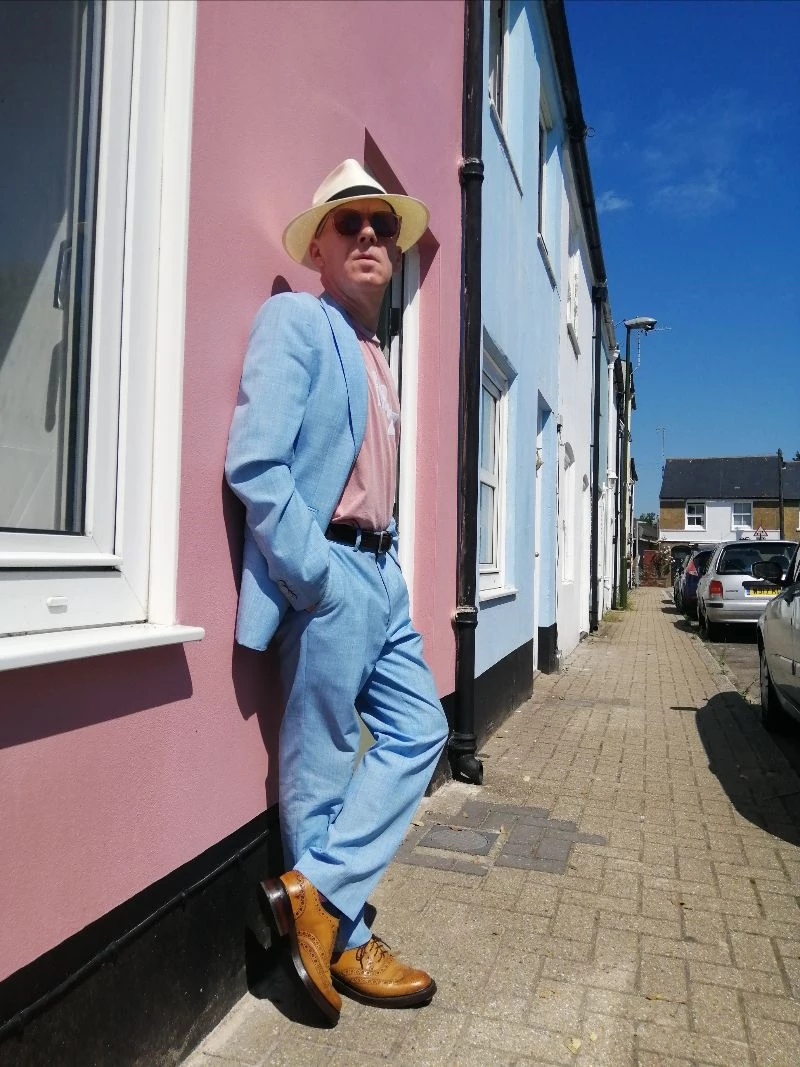
intro
Singer-songwriter and multi-instrumentalist Keiron Phelan talks to Kimberly Bright about his new Peace Signs album ‘Bubblegum Boogie’ and his work at Gare Du Nord Records.
‘Bubblegum Boogie’ is the third album from South London singer-songwriter Keiron Phelan and his band Peace Signs. After playing in State River Widening, Phelan Sheppard, Smile Down Upon Us, and littlebow with Katie English, he began Peace Signs in 2018, singing for the first time as well as writing music. The first two Peace Signs albums, their 2018 self-titled debut and 2020's ‘Hobby Jingo,’ are impeccable, light-aura'ed and lighthearted multi-faceted pop. They were written and recorded under far less challenging circumstances than the equally enjoyable ‘Bubblegum Boogie’. Phelan dealt with a pandemic lockdown, making it impossible for musicians to work for several months, while caring for his terminally ill mother. Phelan chatted with Pennyblackmusic about the writing and creation of his new record and his stellar work at Folkstone boutique music label Gare Du Nord Records. Pennyblackmusic: Do you think that, as a body of work, the three Peace Signs albums hang together as a trilogy? KEIRON PHELAN: I hope so. When I started recording the first (eponymous) Peace Signs album I didn't plan on writing a series of song-albums. Coming out of fifteenyears of working in post-rock and neo-classical music I simply felt it was time to make a solo album. Initially I thought it might be a mix of instrumental stuff and songs and the more complex, largely instrumental, pieces (such as 'Canterbury') were written first. Then a bunch of songs occurred, and then more songs, until they were clearly the centre of it. Turns out I had things to sing about, I just hadn't got around to it before. Which is a little weird as I have quite a good voice (excuse lack of modesty!). Also accidentally I acquired a really good band in the process. So, some happy chance going on. ‘Hobby Jingo’ was far more constructed. It follows on from the musical and lyrical concerns of the first album but it's more comprehensively a singer-songwriter style of activity, more directly melodic and a little more pushy. And the early '70s trappings (my favourite musical era) that were hinted at on the first album are foregrounded. ‘Bubblegum Boogie’ continues that but is more introspective and personal in its concerns. The three albums are odd animals in a way. It's slightly quixotic, flashy and sometimes almost camp music. Yet it's also very pensive and can be rather melancholic. File under Art-Pop. PB: Were there any other artists you considered covering for ‘Bubblegum Boogie’ besides Bill Fay and Lynsey de Paul? KP: I was completely set on Bill and Lynsey for this album. I think I 'do' Bill well, in that my approach to his songs is quite different to his own treatments (I'd recorded his 'Goodnight Stan' for the previous Peace Signs album ‘Hobby Jingo’). Little point in doing a cover version if it sounds like the original, I think. For one thing Bill is a devout Christian, though a very questioning one, and that informs his songwriting, whereas I'm an atheist which gives me a very different perspective on his lyrics. But I greatly love and respect the sincerity of his position, and I hope I bring that quality to my own versions. The Lynsey song is one from the cusp of my teens. It's generally taken as a 'sweet' song, albeit 'sexy sweet'. But I think I found a darkness in it. Ostensibly it's a plea to a lover to be faithful and appreciative. But the narrator is actually a relentless attention seeker. It's all there in the lyrics, and the structural and lyrical repetition. Also I inverted the genders, which I guess changes the perspective. PB: Your press release mentions Clifford T. Ward, who is someone I think should be remembered more. What are your thoughts about his work? Did he inspire you to add more country touches to this album? KP: To my shame I'm not familiar with a great deal of his work apart from the obvious stuff. Which is something I mean to attend to in short order. It was more the fact that some of the vocal melodies and, occasionally, the timbre of my voice on the album (the song 'I Don't Know How We're Getting Home From Here' for example) reminded me of Ward. It took some time for me to work out that it was the distant memory and influence of his early singles that the tone was coming from. There's sometimes a shared gentleness,too with Ward's style of writing. I'd say the country touches are coming more from my listening to a lot of Jimmy Campbell, one of whose songs I'll cover on the next album, and from the fact that the band just do 'good country'. It seems to be a natural vibe for us so we slip into it when occasion allows. PB: What's it like working at Lightship 95, in an actual ship? KP: Unique! I think it's great. So much so that I became one of the shareholders. It's such a splendid thing to look at, to be on board of, and has been wonderfully redesigned for studio and living purposes. Everyone who goes there seems to fall under the enchantment. It's moored where the River Lea flows into the Thames, in East London Docklands, so it's tidal. At low tide we sit on the riverbed and as the tide rises we float. So, you can start a recording session motionless and as the day continues you start to feel the Ship drifting slightly. Studios can have a rather uni-purpose, locked in, feel which can get dull. But that never happens on Lightship '95. The only real problem is stopping the musicians from wandering off to explore, instead of getting on with playing. PB: While you were caring for your mother, did you use songwriting as a compartmentalized escape from the day-to-day stress, kind of as an oasis for yourself, or as a workaholic need to keep working on things regardless of the external circumstances? Also, have you ever really been told that you have your father's eyes? That's a line that could go all sorts of ways emotionally, depending on the circumstances and your relationship with him and the person saying it. KP: Yes, completely a matter of compartmentalization. A fairly strict one too as, when looking after someone with dementia, you never know when you next get “called on”. You could have a couple of quiet hours, or it could be a disruption every fifteen minutes. So you have to snap from one world to the other, as needed. The whole 'having to be in the right mood' for songwriting is a luxury you don't have. But, as you say, it is important (in some ways vital) to keep working, regardless. To the second question; the “father's eyes” line comes from the song 'You've Got You Mother's Love'. That's about my mother's relationship with her mother. The two of them brought me up. Both of their husbands left them (suddenly) which to women of their time and class was an economic catastrophe, regardless of other matters. But it wasn't a thing that brought them together. Unfortunately, rather the opposite. So, what does a mother think when she's bringing up a child and that child starts to resemble or remind her of her errant husband? Must feel complicated. That's probably my rawest song. I'm aware I haven't quite answered the question. PB: Were you motivated to take notes about your early life and possibly write a memoir eventually, while staying in your childhood home? KP: Oddly, things moved in the opposite way. As my mother (due to her dementia) ceased to recognise that she was living in her own home the place itself began to lose its historical meaning for me. Possibly this was an unconscious, psychologically sympathetic, response. But there's now hardly anyone left alive who remembers my early life so, to a large extent, I currently feel rather 'pastless'. It's a slightly unnerving feeling but an interesting one for a writer. Conversely, many of the songs on the album do reference things from my late childhood and early teens, which is no coincidence. But it's very stylised. When you're the only one who remembers yourself, you have free reign to polish the past up a bit, you know? PB: How did your musical interests and inspirations evolve from the first Peace Signs album in 2018 to the latest? KP: Inspirationally, hearing Ian Button's own Papernut Cambridge really gave me license to roam. Certainly on the emotionally lighter side of things it made me realise it was “OK to do that”. Otherwise it's often been a question of internal development. I had the sense that Peace Signs was, instrumentally, an almost cabaret style line up quite early on. A little like Steve Harley's Cockney Rebel, where there was no electric guitar. I always thought there was way more mileage in that kind of line up than has been widely used. I don't dislike electric guitars, but they do tend to dominate the sound picture of almost every band that uses them. Which, of course, is most. One can get bored. So, we've continued to foreground woodwind instruments (partly as I play woodwind myself), piano, and the pedal steel adds a weird touch. I'm told that my writing has become more personal during the evolution of the band, which makes sense. Initially most Peace Signs songs were character-studies, stories or vignettes, of one form or another. But ‘Bubblegum Boogie’ is definitely from closer to home, more autobiographical. Specific influences come through in an odd way. For example, I seem to sound a little like Kevin Ayers, whose music I like but have never listened to in any depth. So, of all the many singers that I've liked, why him? I'm also told there are some John Cale connections. I love Cale's work but have never thought of him as a direct influence because he's very hard to work out. He's a one-off, you can't “do” John Cale. Yet, it's emerging somehow. But, as a writer, I think it's often best that these things remain mysterious. PB: Did you develop any new musical obsessions during the lockdown? KP: I can barely remember. Although historically recent, psychologically that period now seems a long time ago. Thankfully, as I'm an intensely social person. I recall listening to a lot of late baroque music. Bach and the like. Very good for one's sense of patience is Bach, life being somewhat more measured in the 18th Century. The extra patience helped. PB: What's your collaborative relationship with Giles Barrett like? KP: Aside from being a first class engineer, he has a big artistic input into the albums. He co-produces. He has a remarkable sense of which take is the best one, for any vocal or instrument, or which parts from various takes should be put together to create the best final version. And he mentally shapes that while recording the parts, not in review. That's a rare talent. He's also the bass player in the band, which means he wears three creative hats at the same time. Rather him than me. The funny thing about Giles is that, in the studio, he's an astonishingly patient guy. Outside of the studio, well, really not so much. Where does '”hat” man hide during studio time?! PB: Can you talk a bit about the early '70s pop aesthetic you and Catherine Whiteoak chose for the album art? KP: We wanted to work with the elements from the previous covers (the childlike heart and stars, and deconstructing the actual Peace Signs 'CND' [Committee for Nuclear Disarmament] logo) to maintain “brand (or band!) identity” but develop the colour theme to make it slightly bolder and more directly 70s, as it's a (deliberately) very '70s album title. Which also worked with the existing font. The feel of the album lent itself to a slightly funkier design and the development of the pattern, like pseudo-'70s wallpaper. We felt it worked well when we cropped it into sections, which we did for ideas for an insta teaser, and then decided to go with that abstract aesthetic for the actual cover. It has a bit of punchiness. We also played with more literal bubblegum ideas but they just weren’t as strong. Maybe next time for that. PB: How did you meet Ian Button and become involved with Gare Du Nord? KP: I checked this with Ian and neither of us can remember, except that it was around seven years ago. But there's a three degrees of separation aspect to us knowing each other, so it was almost inevitable. This shouldn't really happen in a place the size of London but, providing the style of music they play isn't completely alien to my own, I rarely seem to meet another musician who doesn't know or work with someone I already know. And upon meeting it often feels like we've already known each other for some time. That was very much the case with Ian. PB: What distinguishes it from other labels? Is there a company culture, vibe, mission/philosophy that is unique there? KP: Gare du Nord was set up by Ian alongside Robert Rotifer and Ralegh Long, but it would be true to say that Ian is very much the main man. So, in a sense, the company culture comes from him. But Ian has a strangely serendipitous way with music; he generates a great deal of musical activity around him without it seeming to require negotiating or planning. He's got a tremendous work ethic but it feels almost effortless. It's just what he does. Reflective of that is the fact that the Gare du Nord acts seem, largely, to drift naturally into our orbit rather than “sign” as part of an overarching plan. Obviously there is guidance involved in the label, and jobs to be done, but the big picture seems to mysteriously take care of itself. People and events gravitate together. I realise how fanciful that sounds, but that genuinely is the feel of it. PB: How has it been different from other labels you have worked for personally? KP: It's very different. For example, there is no label release timetable. The acts set their own release dates and no one has to form a queue, which would be more normal. Frankly there are so many releases (generally) every week, that it's become pointless for any particular label to stagger their own. The more so as there is no signature Gare du Nord sound or vibe. As long as it's imaginative work, of good quality and is of a seriously individualistic nature, then Gare du Nord will consider taking it. It's a beautifully quixotic situation that, somehow, also becomes workable. There are, by comparison, many very decent indie pop labels around (thankfully). But it tends to be the case that the bands they release music by all share a musical commonality. Fair enough if you're happy living in a pleasant musical ghetto. But Gare du Nord is the opposite of that kind of narrowness. Imagination and individualism are the watchwords for the bands on the label. Other than that, it's quite style-kaleidoscopic. PB: What have been some memorable moments working there? KP: I'm basically the closest thing Gare du Nord has to an in-house PR guy. I'm there, if and when needed. One thing that leaps to mind is becoming aware of how wide and disparate the musical knowledge and abilities of the Gare du Nord roster are. Being taught how Bartok's harmonic axis theory works by the lead guitarist of tvfordogs (a rock band) and finding out that Rosey Chan of Carnet De Voyage (an electronica outfit) can play and has performed the virtuosically difficult Ravel’s ‘Piano Concerto in G’, for example. Being on the same label as Syd Barrett's former drummer (Twink) is pretty trippy, too. It's a long way from indie-schmindie. PB: What Gare Du Nord artists have you had a direct influence on signing? KP: Michael Warren (nee Ziggy Heroe), notably. A lovely moment for me, as he'd previously been out of the music biz for nearly twenty five years. Not an easy man to locate. It took a low level campaign of several years for me to even find him as he works as head croupier on international cruise ships. Thinking about it, that's a very Gare du Nord kind of process. PB: What do you consider to be Gare Du Nord's greatest achievement? KP: Perhaps, simply, its longevity? Most record labels that have a 'plan' seem to have a built in expiry date or, alternatively, burn out after some years due to the demands of following that plan. Gare du Nord has no such issue. There's no reason why it shouldn't just keep on trucking. PB: Thank you.
Band Links:-
https://www.facebook.com/keiron.phelanhttps://keironphelan.bandcamp.com/releases
Play in YouTube:-
Picture Gallery:-
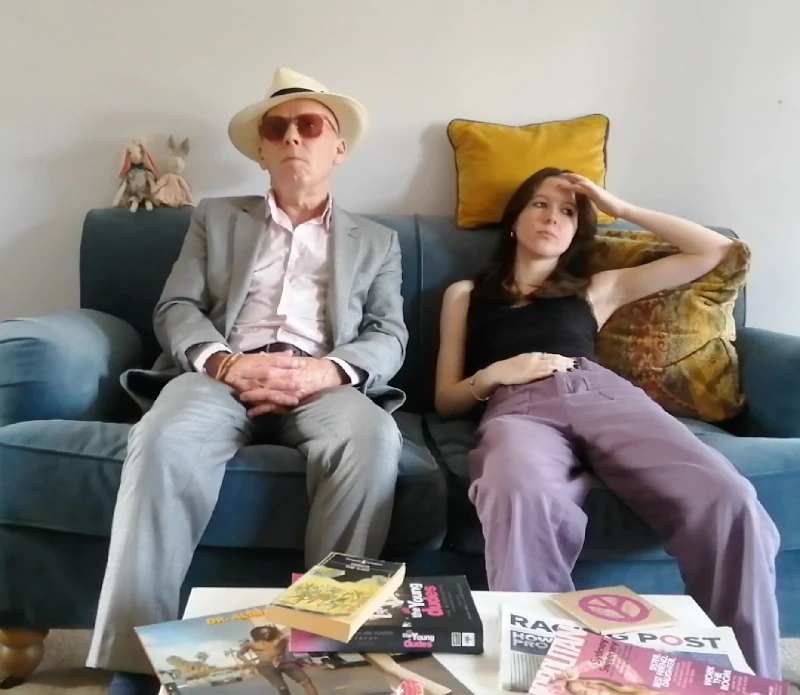
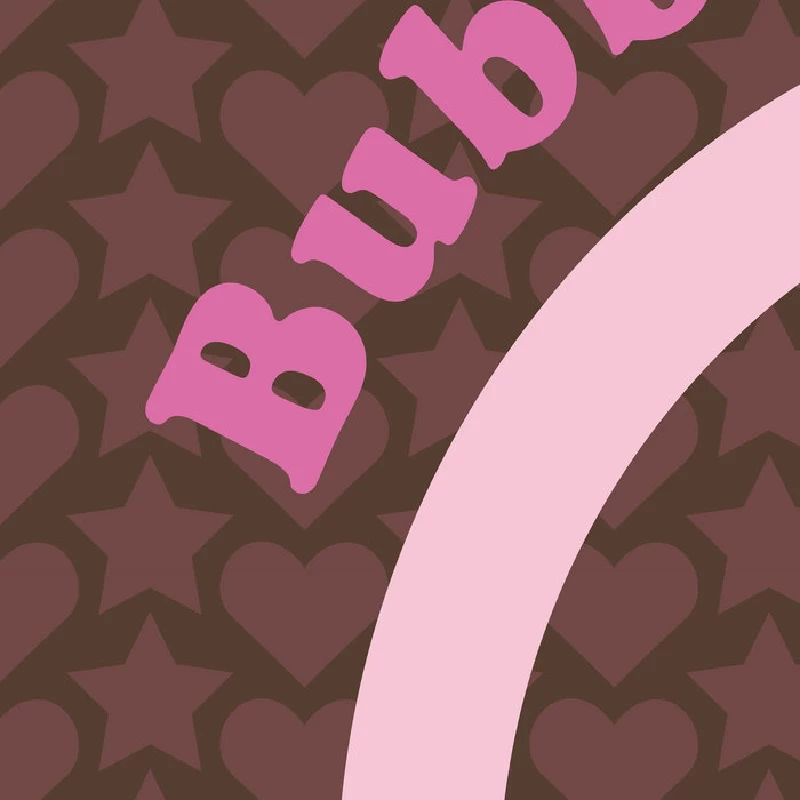
interviews |
|
Interview (2019) |
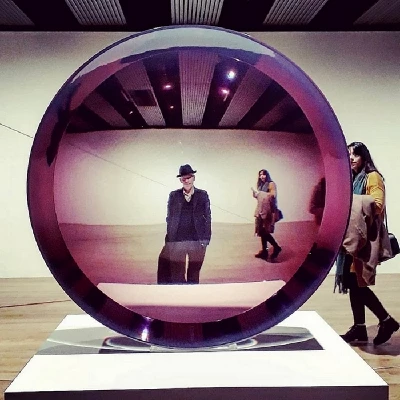
|
| Songwriter and composer Keiron Phelan talks to Kimberly Bright about his first solo album 'Peace Signs', as well as Chaucer's 'The Canterbury Tales', liturgical music, and accents. |
reviews |
|
Peace Signs (2019) |
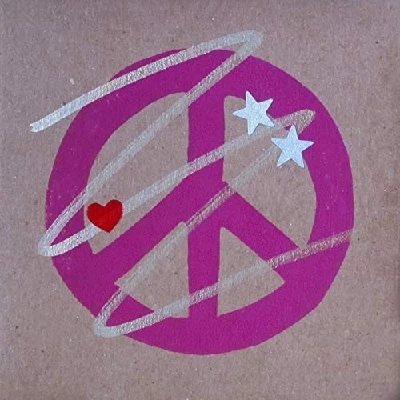
|
| Debut solo album from London-based songwriter and composer Keiron Phelan which is full of delightful relaxed psych pop and elegant character sketches |
most viewed articles
current edition
Carl Ewens - David Bowie 1964 to 1982 On Track: Every Album, Every SongArmory Show - Interview with Richard Jobson
John McKay - Interview
Colin Blunstone - Thalia Hall, Chicago, 16/7/2025
Bathers - Photoscapes 1
Billie Eilish - O2 Arena, London, 10/7/2025
Loft - Interview
Visor Fest - Valencia, Spain, 26/9/2025...27/9/2025
Sir Tim Rice - Interview
Robert Forster - Interview
previous editions
Heavenly - P.U.N.K. Girl EPManic Street Preachers - (Gig of a Lifetime) Millennium Stadium, Cardiff, December 1999
Beautiful South - Ten Songs That Made Me Love...
Peter Perrett - In Dreams Begin Responsibilities Interview Part One
Boomtown Rats - Ten Songs That Made Me Love....
Oasis - Oasis, Earl's Court, London, 1995
Coldplay - Wembley Arena. London, 16/8/2022
Prolapse - Interview
Trudie Myerscough-Harris - Interview
Pixies - Ten Songs That Made Me Love...
most viewed reviews
current edition
Davey Woodward - Mumbo in the JumboSick Man of Europe - The Sick Man of Europe
Lucy Spraggan - Other Sides of the Moon
Blueboy - 2
Amy Macdonald - Is This What You've Been Waiting For?
Bush - I Beat Loneliness
Suzanne Vega - Flying With Angels
Phew, Erika Kobayashi,, Dieter Moebius - Radium Girls
Alice Cooper - The Revenge of Alice Cooper
Cynthia Erivo - I Forgive You
Pennyblackmusic Regular Contributors
Adrian Janes
Amanda J. Window
Andrew Twambley
Anthony Dhanendran
Benjamin Howarth
Cila Warncke
Daniel Cressey
Darren Aston
Dastardly
Dave Goodwin
Denzil Watson
Dominic B. Simpson
Eoghan Lyng
Fiona Hutchings
Harry Sherriff
Helen Tipping
Jamie Rowland
John Clarkson
Julie Cruickshank
Kimberly Bright
Lisa Torem
Maarten Schiethart